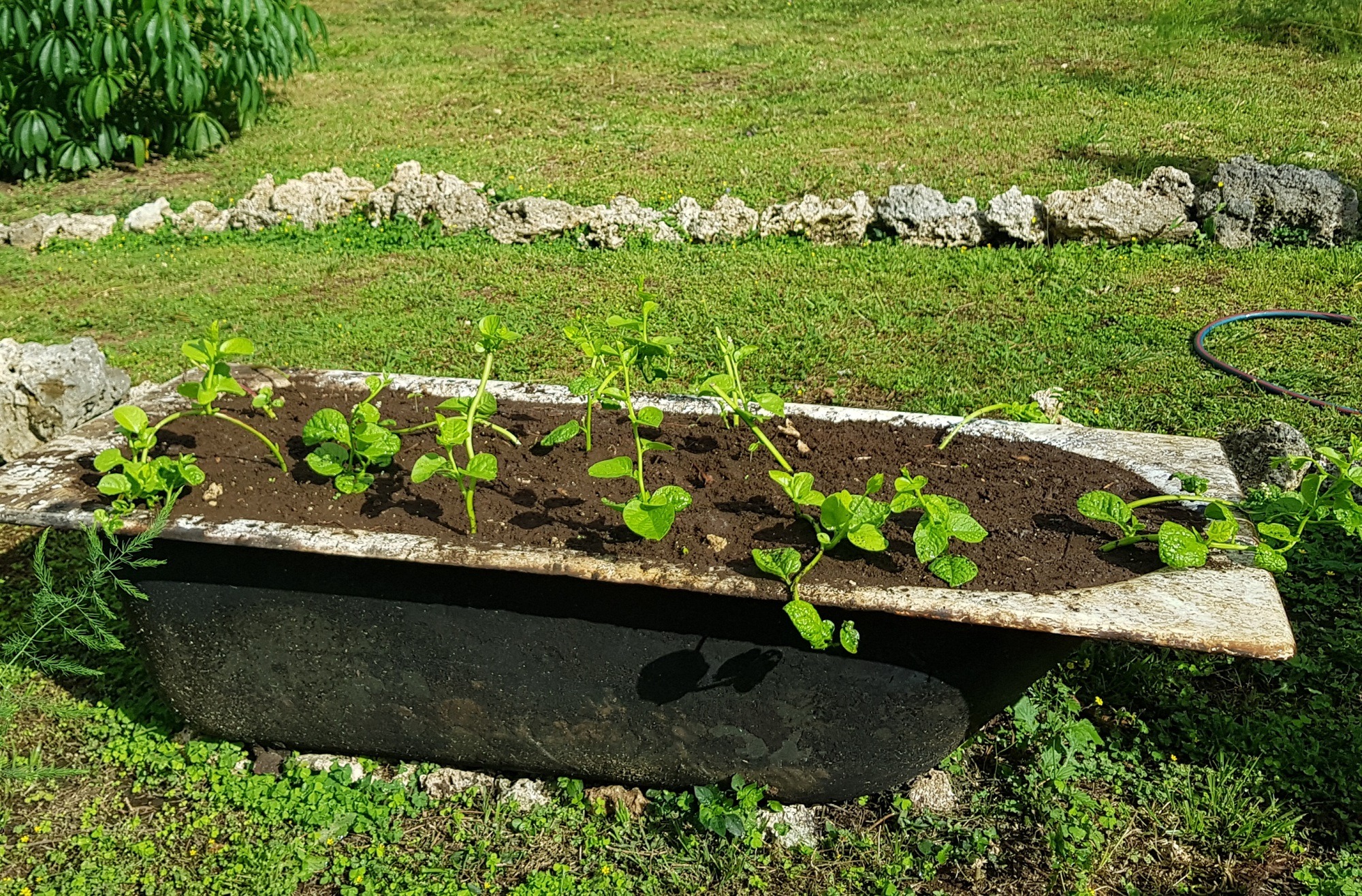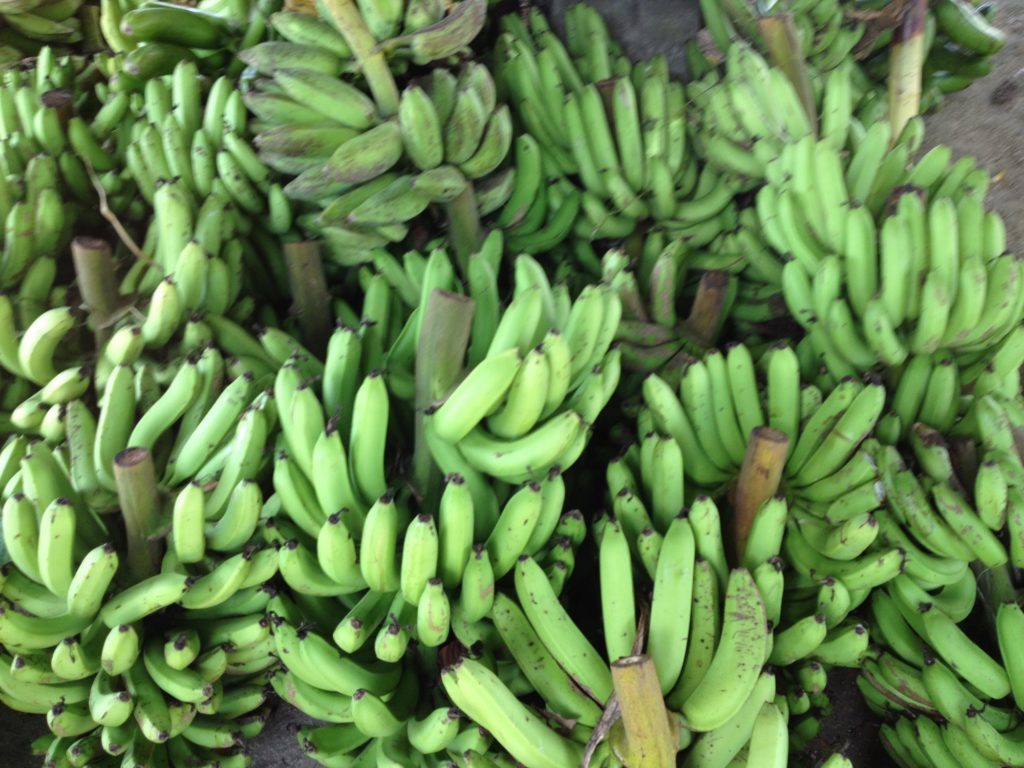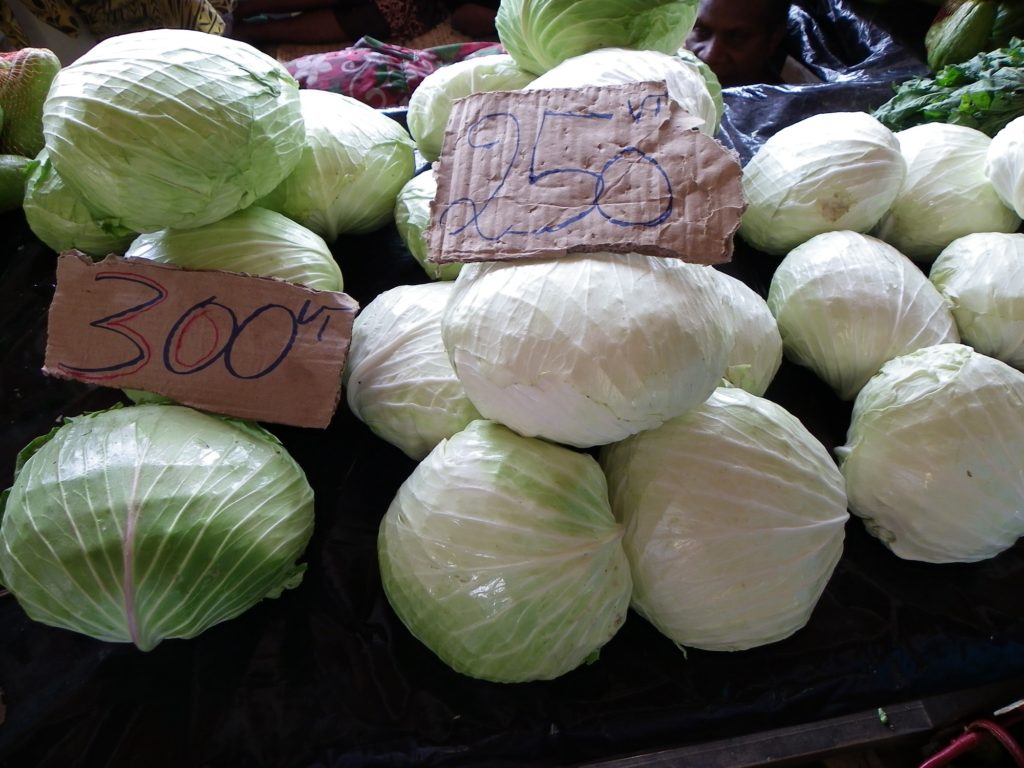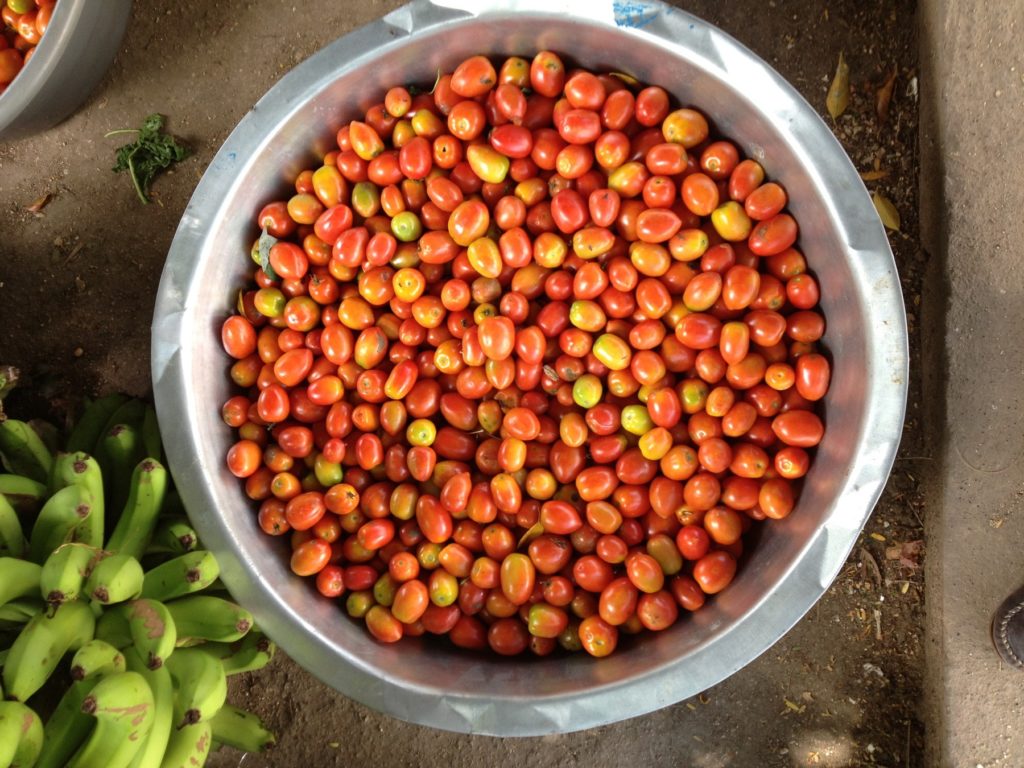Dine
Enjoy the benefits of Healthy Gardening
Carolyn Ernst grows any number of healthy organic veggies and recommends the best ways you too can enjoy eating what you grow.
December 14, 2019
Pacific Island Living
December 14, 2019The Food Revolution is here. NCD’s (Non Communicable Diseases- High blood pressure, cardiovascular diseases sugar diabetes, cancer, etc) are creating havoc in the Pacific and to combat them we are being encouraged to take a good look at what we eat and the amount of exercise we get. Smoking and alcohol contribute to the problem but the main cause is the types of food we are consuming.
Processed foods are high in sugar and salt and have little or no nutritional value. There are many reasons for the change in our eating habits. In many cases it is the convenience of it, especially if the cook of the family is employed full time.
It is so easy to drop in and buy a pizza or something in a packet. The medical statistics in the Pacific paint a grim picture. The figures show that in 2015, the Pacific had six countries in the ten top countries in the world, for the rate of sugar diabetes of 20-79 year olds, with Tokelau the highest at 30%. Unfortunately these numbers are rapidly getting worse.
NCDs are also the major contributor to premature death in the Pacific. There are also the additional costs to society of lowered productivity, increased absenteeism, lowered educational learning and the high costs to our health departments.
There is a huge push for us to understand the connection between the food we eat and our health and the value of the food our ancestors ate. With this aim, there are an increasing number of food events from slow food festivals to international cooking competitions.
Even without this we are are all becoming more conscious of the food we put in our mouth and the single easiest way to control the quality of this food, is to grow it yourself. Along with the types of food we eat is the concern of how it is grown.

The word organic has become very popular and it is much overused. Someone once told me that they had just bought an organic cookbook. This is not possible, organics is a technique not a product. To be able to make the right choices you must be informed and understand the differences.
‘Organic’ – of food or farming method – produced without he use of chemical fertilisers, pesticides or other artificial chemicals. ‘Open pollinated’ generally refers to seeds that will produce plants that are the same as their parents.
‘Hybrids’ is a cross between two unrelated plants resulting in seed that carries one or more favourable traits. F1 is the result of two unrelated open pollinated plants. Then of course there is the baddie in the bunch – ‘GMO’ – genetically modified seed – this is seed that has been modified with non-plant DNA.
Many people use organics to cover food that is grown using healthy sustainable methods but not technically truly organic. Once you know and understand the difference it is easy to make the choices that suit you.

Some vegetable varieties can be easily grown without the use of any chemicals and it is important to note that a small amount of insect damage is not a problem. There are however certain families of vegetables that are almost impossible to grow, here in our warm climate, without the use of some sort of chemicals. The worst are the cabbage and cucurbits groups; insects, moulds and mildews love these family groups. If you need to use pesticides or fungicides then you need to do your homework and find out the friendly safe sprays that are available to you. There are also many DIY sprays that you can make, that are quite effective.
All of these solutions have one problem, if you live in a high rainfall area, you need to respray after every shower. If the organic sprays are not working for you, you will need to use something stronger. Before deciding on what chemicals to use, do some more homework, most of them are perfectly safe if used correctly. Mixing instructions are to be followed correctly, and he withholding periods are important. A withholding period is the time between spraying and eating your vegetables.
Vegetable growing is very rewarding and there is nothingas good as eating your own home grown vegetables. It does not take a lot of time and it is a great thing to do as a family, everyone can help prepare the soil and even the youngest can help plant the bigger seeds; like beans, peas and pumpkins.
Children love watching seeds grow, first the tip, as the seed first emerges, then followed by the first two leaves. Children learn early which are the good plants and which are weeds.
They absolutely adore munching freshly picked beans and peas, so much so, if your household is like mine, no pea ever makes it to the kitchen.

It is important to make sure you understand the growing requirements of each plant. The room each plant requires s important, so they can be spaced correctly and many require some form of support. Tomatoes need to be tacked and also the side shoots nipped out, so the plant puts all is effort into the one main stem. Also where it gets a bit hot and humid, this keeps the plant open to improve the airflow, so controlling mildews and mould. I have also seen tomatoes grown up and onto a supported horizontal trellis. There are a huge rang of support options, check out the internet for the type that suits you and your growing area.
Also get out of your comfort zone, there is a huge range of different vegetables that you can grow. Some of these are the traditional crops grown throughout the Pacific and there is the growing availability of different vegetables traditionally grown in the Asia region. The good thing about Asian vegetables is that many of them will grow and produce during the rainy hot season, unlike a lot of the traditional European types.
There has also been much research done in growing varieties of some of the European vegetables so that they will grow during the hot season. There are now varieties of leafy lettuces and tomatoes for the whole year and more types of tomatoes suitable for the wet tropics. In Vanuatu we have a tiny wild tomato that produces baby sweet tomatoes the whole year, nothing seems to eat it and it has a natural immunity to mildews. I am currently trialling growing them in my garden. The tomato is tiny but oh so sweet and tasty.
Island cabbage is another favourite, sautéed or used like you would cabbage in any cooked dish, it comes in a mile of shapes and colours and is delicious and also good for you. It is very productive and easy to grow. Choko is another interesting vegetable. They are a short lived perennial and are very productive. The choko has a million uses from salads to sautéed in garlic and is only limited by your imagination.
I am really enjoying my winged beans or dragon bean; the baby beans are delicious in a salad or in any other recipe that calls for beans. Also I have just planted a tub of water spinach and eagerly await the result. It is supposed to be easy to grow and very delicious. It likes lots of water but does not need to be grown in water.
Then there are the root crops, our first manioc is due to be harvested just three months after planting. The kumala (kumara) is thriving and the choice of varieties is endless. Our café has trialed many sorts but finds the white types makes the best chips so we are currently busy propagating. We use a shoot tip cutting to propagate.Then there are many different varieties of taros and yams. I like the African yam which is smaller and very sweet, I have just managed to find some planting materials so will get them planted this week.
Your vegetable garden doesn’t need to be huge, if your space is limited, many vegetables can be grown in containers. Concentrate on the vegetables that you like and use a lot of. Remember a lot of different lettuces do not need to be pulled out and eaten all at once. I often just harvest the leaves that I need and let the plant continue growing, they will eventually go to seed but you will get many weeks’ worth of use from just a small area. Tomatoes and cucumbers can be grown up or left to hang from their basket, this will produce a very productive hanging basket for you patios and verandas.
If you live in any of the major cities there are many community gardens. This is a great way to produce your own food but also to meet people and get involved in the community.
And, don’t forget the added health benefits of gardening, it is a form of exercise and there is nothing more relaxing than five minutes spent in your garden. You don’t always have to do anything, just stand still and let the peace and serenity sooth your soul. It is a proven fact that gardeners live longer and healthier than non-gardeners.
Have a healthy day and enjoy your garden.
Gardening editor Carolyn Ernst owns and operates Eden on the River, an open-garden, petting zoo, cafe, mini zipline, waterfall adventure park in Port Vila. It is a must visit whilst in Vanuatu for a great day out.
© 2024 Pacific Island Living Magazine all Rights Reserved
Website by Power Marketing